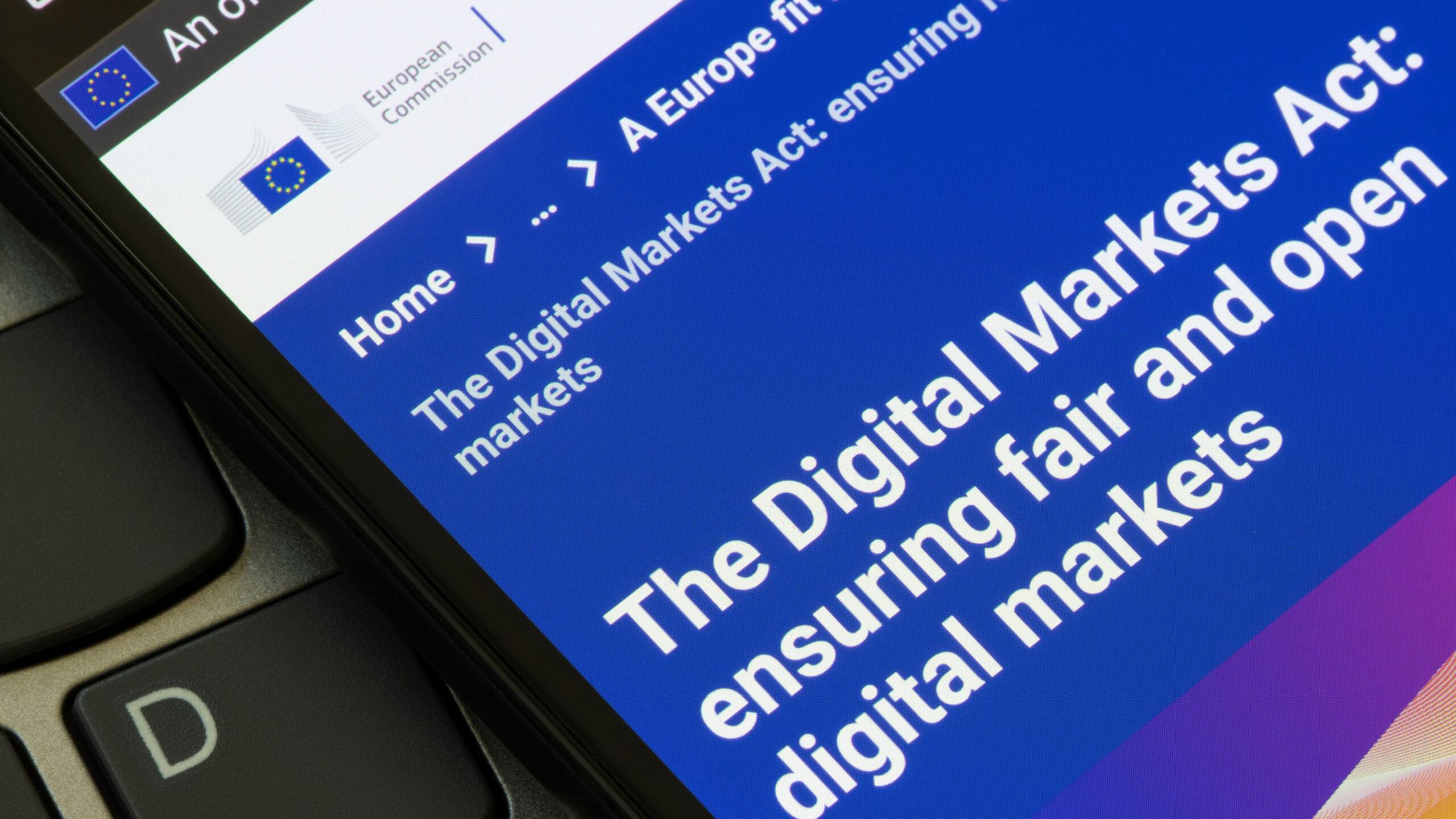ICYMI: Experts Say DMA Threatens Job Creation
At event on EU Digital Markets Act, PPI Chief Economist says DMA could restrict industry that has created 1.4 million new jobs over last four years
At a Nov. 4 virtual event convened by the Center for Strategic and International Studies (CSIS), experts discussed the impact of the EU’s Digital Markets Act (DMA), which U.S. officials, including the U.S. Commerce Secretary, have said they oppose because of the impact on U.S. companies. European officials have championed the DMA as a tool for achieving “digital sovereignty” and, as French President Emmanuel Macron put it, “defending European champions.”
The DMA targets American companies, leaving out EU tech competitors and rapidly growing Chinese tech firms. The event comes after CSIS released a report that found the DMA “threatens to impose heavy-handed antitrust measures and to exclusively levy punitive fines on large U.S. firms, while leaving other countries’ tech firms—namely European, Chinese, and perhaps Russian companies supplying essentially the same services—untouched.”
Speakers agreed that the United States can take a stronger stance on the regulatory initiative, noting the critical window to refine the DMA and ensure its consistency with Transatlantic principles. Dr. Michael Mandel, the Chief Economist at the Progressive Policy Institute, also made the case that the DMA threatens middle-skill jobs that have been created across the country by the tech and e-commerce industry.
Key excerpts from the event follow:
- The DMA targets one of the largest job creating industries in the U.S.:
Dr. Michael Mandel, Vice President and Chief Economist, Progressive Policy Institute:
“One of the most important things about the DMA is that it’s really aimed at one of the great U.S. job creating industries at this point. Historically, we haven’t thought about tech and e-commerce as being a great source of jobs, but over the last few years, it’s actually been the major source of job growth in the economy. We have just done a bit if research on this. If you go to our website, I just put up a blog item on tech as a creator of middle skill jobs and I think that’s really important here because the goal of U.S. trade policy has to be, in part, to make sure that the U.S. is creating a new middle class, you know, not just based on manufacturing, but based on sort of technology and e-commerce. And this is what we’ve actually seen over the last four years. We’ve seen 1.4 million jobs created in the tech e-commerce sector in the U.S. and it looks to me like the DMA would have the effect of slowing a lot of this job growth and actually undercutting the creation of a new middle class in the U.S. and … from the point of view of the Democrats that seems to be a bad idea. And so I’m a little bit sort of puzzled that the U.S. has not taken a stronger position against what looks like restrictive trade measures on one of the great job creating industries we have these days.”
- The DMA would slow the momentum of middle-skill job creation:
Dr. Michael Mandel, Vice President and Chief Economist, Progressive Policy Institute:
“Over the last four years, from 2017 to sort of 2021, there’s been 1.4 million jobs created in the tech e-commerce sector in the U.S.”
“We really have reached this really interesting key moment in the political economy of the U.S. where so much of the debate, okay the very intense debate, between the left and right – between the Republicans and the Democrats – is about the creation of these middle-skill jobs sort of across the country and they are being created by both large and small companies and why would we want this momentum to be broken?”
- EU policymakers cautioned against extreme intervention:
Benedikt Blomeyer, Director of EU Policy, Allied for Startups: “The job numbers coming from tech from startups in Europe are similarly impressive. Startups are hiring three times more than other economic sectors here, as well. We’ve seen, you know, the startup ecosystem in Europe go from record year to record year and investments as well are going from record year to record year and we’ve shared the feedback with policymakers here that the system isn’t fundamentally broken even if we want to, you know, fine tune it. But I do think Michael is absolutely spot on when he suggests that we should maybe be focusing a bit more on the jobs angle and the business angle and a bit more on also, I think an argument I think we’ve lost so to speak, the consumer angle.”
- Policymakers risk “knocking the ball back into our own goal”:
Dr. Michael Mandel, Vice President and Chief Economist, Progressive Policy Institute: “This is what’s really interesting about this whole discussion – not just in Europe, but in the U.S., which is that if you believe that middle-skill jobs are the objective for everybody … this runs the risk of … policymakers knocking the knocking the ball back into our own goal at this point.”
- Dividing EU and U.S. while omitting China is not the answer:
Tyson Barker, Head of Technology and Global Affairs Program, German Council on Foreign Relations: “The truth is it’s unlikely that Chinese companies would currently fall under the DMA as it is interpreted, either Bytedance or Ali and it is an issue.”
Dr. Michael Mandel, Vice President and Chief Economist, Progressive Policy Institute: “What China is doing is it’s bringing the tech companies under authoritarian rule at this point, political rule and that seems to me to be exactly the way that we would not want to go. And … the Chinese question really raises a larger point … which is shared values, okay, and the question is whether or not the U.S. and Europe have deeper shared values than they do with China, and that’s what seems to be missing from the discussion.”








